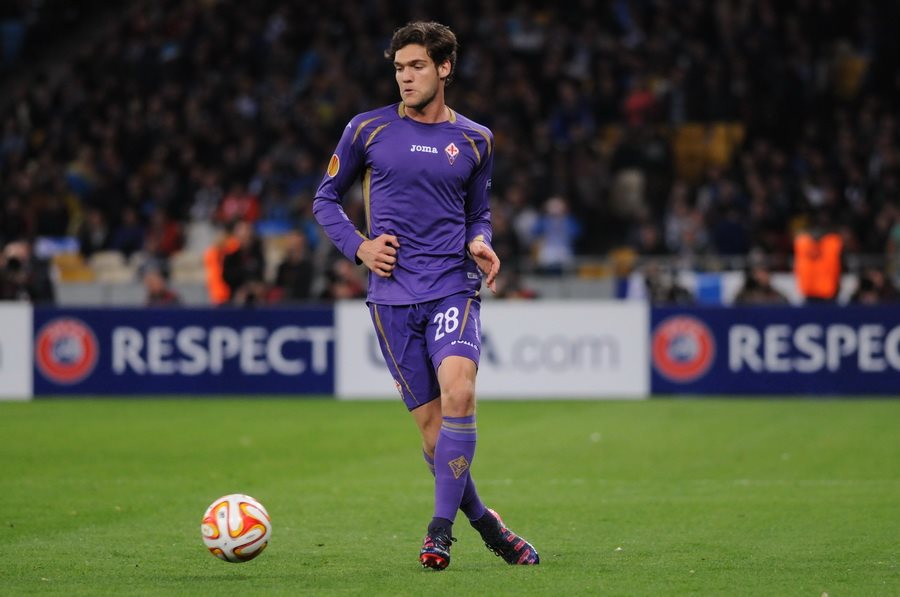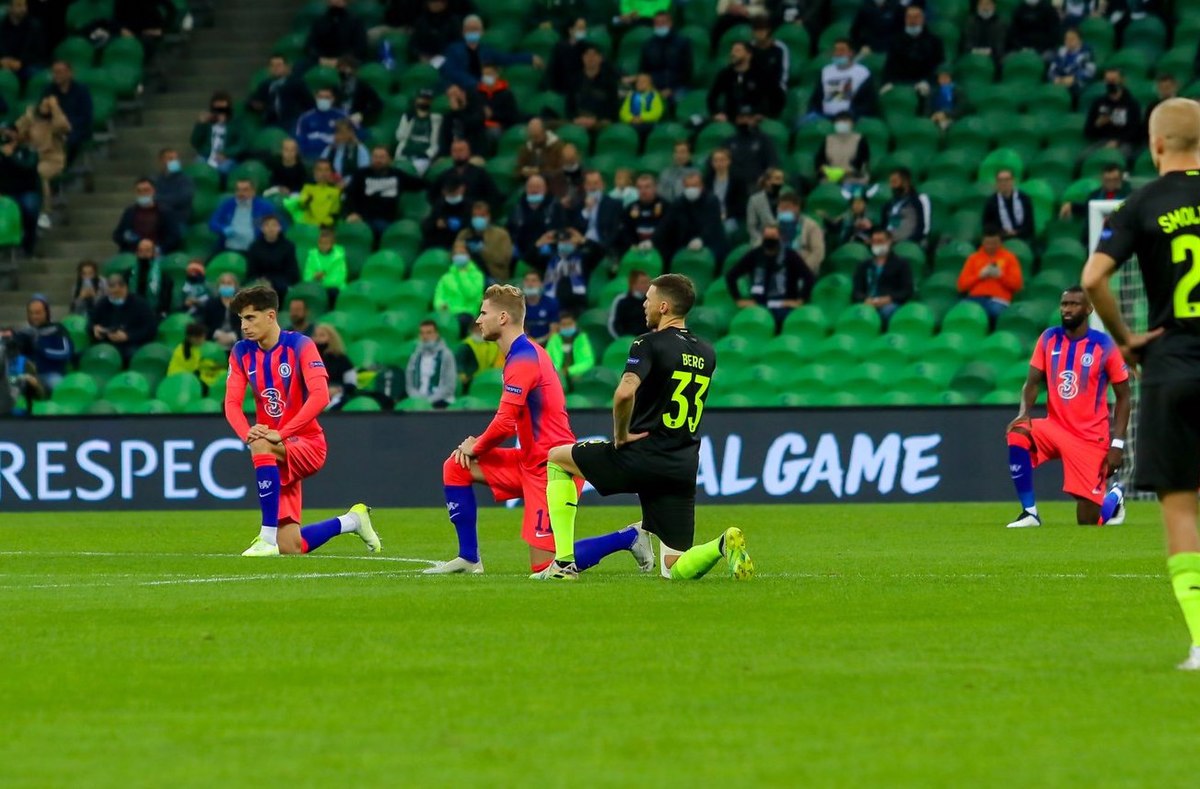Chelsea’s Marcos Alonso Stops Taking the Knee

Image: Илья Хохлов via Wikimedia Commons
Robert Worthington examines Marcos Alonso’s decision to stop taking the knee.
Since June 2020, the unified taking of the knee before football matches has been a common sight in English football. The movement has sparked controversy, with certain microcosms within the football community voicing their distaste for the gesture online and inside football stadiums. A few players and teams have also revealed their concerns about the effectiveness of taking the knee, with some now refraining from participating in the movement.
The latest figure to spark debate in this regard is Chelsea’s Marcos Alonso. The 30-year-old wing-back has revealed he’ll be pointing to the ‘No Room for Racism’ badge on his sleeve while standing pre-kickoff rather than taking the knee. He’ll be continuing his change in approach indefinitely.
The Spaniard ascribes his decision to halt his taking of the knee to the movement “losing a bit of strength” in his eyes. He points to footballers in other countries and athletes in other sports also putting their “finger to the badge”, with Alonso affirming he’d simply “prefer” to portray his anti-racism stance in this manner.
While, of course, Alonso is within his right to promote his anti-racism message in the way in which he perceives to be most effective, many have questioned the necessity behind this change. Former QPR and Sunderland defender Anton Ferdinand has publicly criticised Alonso by insisting all footballers should carry on taking the knee to “continue the conversation” on racism.
Indeed, the symbolic significance of taking the knee is of huge importance. Not so much on an individual level, rather as a collective. The image of 22 footballers alongside match officials, coaching staff and substitutes taking the knee is incredibly powerful. It shows a united approach against racism.

Image: Damitry Pukalik via Wikimedia Commons
For this reason, Alonso’s decision to stop taking the knee has frustrated many in the football community. The taking of the knee is not an individualistic stance. It is a collective and unified pose. It appears Alonso’s decision is influenced by self-interest, as evidenced by the fact the 30-year-old didn’t even tell his Chelsea teammates about his decision prior to the release of his media statements regarding the taking of the knee.
To put it simply, Alonso’s decision to disrupt the overwhelmingly unified gesture of taking the knee in the Premier League is selfish. While there are legitimate concerns regarding the gesticulation due to its links to the ‘Black Lives Matter’ group who possess a dubious manifesto, Alonso doesn’t attribute his choice to such concerns. The gesture that is losing “strength” for Alonso will only weaken further if Premier League footballers stop taking the knee.
As Anton Ferdinand stated, the “conversation” regarding racism in football must be sustained. Already in the 21/22 season, abhorrent examples of racism in football have been witnessed. The English National Team were victims of abuse from Hungary fans in Budapest before AC Milan goalkeeper Mike Maignan was also racially discriminated against by a Juventus fan in mid-September. Not to mention the horrific racism directed towards Marcus Rashford, Jadon Sancho and Bukayo Saka after the trio missed penalties in the Euro 2020 final. There is still plenty of work to do.
Alonso has revealed his viewpoint, and he should therefore stick by it. Nevertheless, at a time when the complete eradication of racism from the beautiful game still seems some way away, Alonso’s decision to stop taking the knee appears unnecessary. Thankfully, Alonso has inadvertently inspired a more important and positive conversation on racism in football. Hopefully, such discussion has prevented Marcos Alonso from becoming a trend-setter in the taking the knee campaign.


